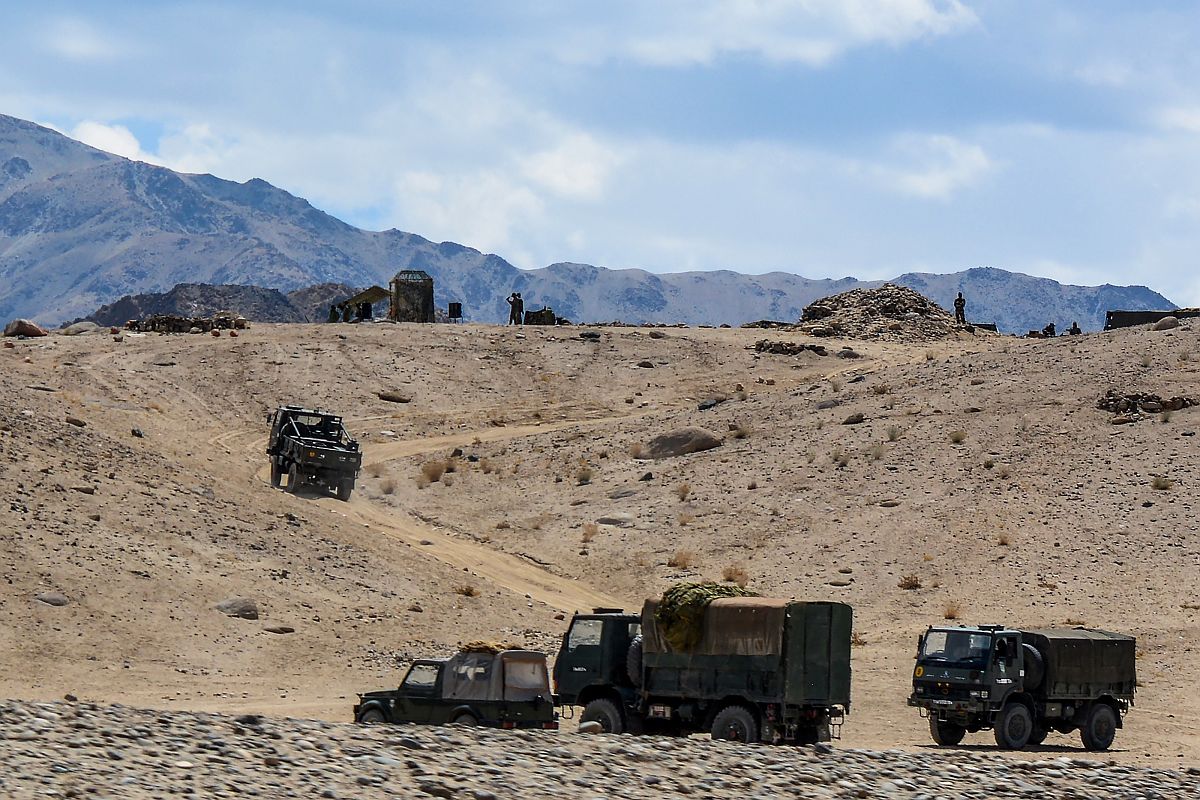US Congress to certify Trump winner of 2024 election
Vice President Kamala Harris will preside over the process on a snowy day that amounted essentially to certifying her own defeat to Trump as the Democratic Party nominee.
In the last few weeks, dozens of lawmakers, across the aisle, both on the floor of the House of Representatives and the Senate and outside the Capitol have praised India of standing strong against the Chinese efforts to grab Indian territories.

(File Photo: AFP)
India has received a strong bipartisan support from members of the US Congress against the recent Chinese military aggression in Ladakh.
Indian and Chinese troops have been locked in a bitter standoff in several areas along the Line of Actual Control (LAC) in eastern Ladakh since May 5. The situation deteriorated after the June 15 Galwan Valley clashes in which 20 Indian Army personnel were killed and an unconfirmed number of Chinese soldiers died.
Advertisement
In the last few weeks, dozens of lawmakers, across the aisle, both on the floor of the House of Representatives and the Senate and outside the Capitol have praised India of standing strong against the Chinese efforts to grab Indian territories.
Advertisement
“I call on China to end its military aggression. This conflict should only be settled through peaceful means,” Congressman Frank Pallone, one of the senior-most Democratic lawmakers, said on the floor of the US House of Representatives, joining other lawmakers in condemning the recent Chinese aggression along the LAC in India’s Ladakh region.
A strong supporter of the India-US relationship, Mr Pallone, founder and Co-Chair of the Congressional Caucus on India and Indian-Americans, has been a member of the US Congress since 1988.
At a time when there is a bitter political divide in Washington DC, influential lawmakers from both the GOP and Democratic Party have been supporting Indian stand against China.
“In the months leading to this clash, the People’s Republic of China (PRC) military reportedly amassed 5,000 soldiers along this boundary and that clearly meant to redraw longstanding resettled borders by force and aggression,” Mr Pallone claimed.
Support to India against China has come in the form of tweets, public speeches, House and Senate floor, letters to Prime Minister Narendra Modi and India’s Ambassador to the US, Taranjit Singh Sandhu, and Congressional resolutions.
Several lawmakers have also made a call to Mr Sandhu to express their outrage against China.
A day earlier, Mr Sandhu received a call from Republican Senator Cory Gardner from Colorado to express his condolences on the loss of lives of Indian soldiers at the LAC.
“The US-India relationship is broad, deep, and growing – and we discussed how vital the cooperation between our nations is to countering common challenges and aggression in the region and upholding a rules-based international order in the Indo-Pacific,” said Cory Gardner, who is also the chairman of the Senate Foreign Relations Subcommittee on East Asia.
Mr Sandhu, who has been meeting top American lawmakers, virtually, on a daily basis has received multiple Congressmen and Senators expressing their strong support to India against China.
“India has made it clear, it will not be bullied by Beijing,” Senator Marco Rubio said
after his call with Mr Sandhu.
Senator Rick Scott, weeks ago, wrote to Prime Minister Modi to commend his fight against the Chinese aggression.
“As you continue to stand strong against Communist China and General Secretary of the Communist Party Xi, I want to offer help in any way I can to the Republic of India, the world’s largest democracy and our ally. The US will always defend our allies and those fighting for freedom. Please do not hesitate to reach out if there is anything you need in this fight,” Mr Scott said.
Congressmen George Holding and Brad Sherman, co-chairmen of the Congressional Caucus on India and Indian-Americans, along with several other lawmakers including Indian-American Congresswoman Pramila Jayapal and Indian-American Congressman Ro Khanna wrote a letter to Mr Sandhu to express extreme disappointment over the events that took place in the Galwan Valley.
They said over the last few months, the Chinese authorities have been acting with impunity and have attempted to transgress on the LAC.
“We are disappointed that China has been acting in contradiction to their agreements with India, in their attempt to change the status quo and challenge Indian troops at the border,” the Congressmen wrote.
Led by Indian-American Congressman Raja Krishnamoorthi and co-sponsored by several others including Ro Khanna, Frank Pallone, Tom Suozzi, Ted Yoho, George Holding, Sheila Jackson-Lee, Haley Stevens and Steve Chabot, the House of Representatives has passed an amendment to the National Defense Authorization Act (NDAA), which says China should work toward de-escalating the situation along the LAC with India through existing diplomatic mechanisms and not through force.
Another NDAA amendment, moved by Congressman Chabot along with Indian-American lawmaker Ami Bera said India and China should work towards de-escalating the situation along the LAC. The amendment expresses its concern over the growing territorial assertiveness of China.
Senate Majority Leader Mitch McConnell on the Senate floor alleged that for the sake of grabbing territory, the People”s Liberation Army (PLA) appears to have instigated the most violent clash between China and India since those nations went to war in 1962.
“I am extremely concerned by the ongoing Chinese aggression along the LAC,” said Congressman Eliot Engel, Chairman of the House Committee on Foreign Affairs.
“China is demonstrating once again that it is willing to bully its neighbours rather than resolve conflicts according to international law,” he said.
“China has resumed its submarine intrusions in the Japanese contiguous zones and picked deadly fights with India at high altitude,” alleged Senator Tom Cotton.
Advertisement